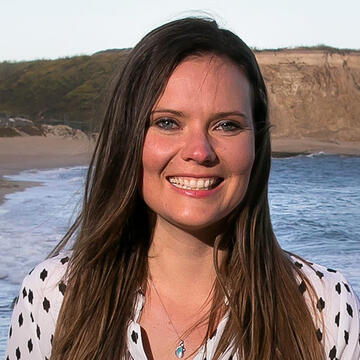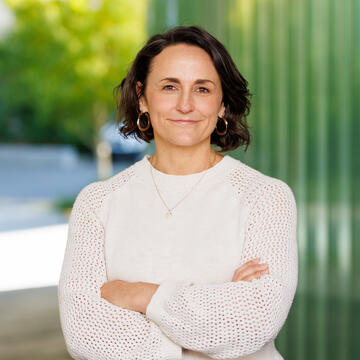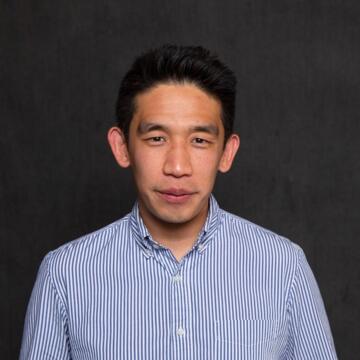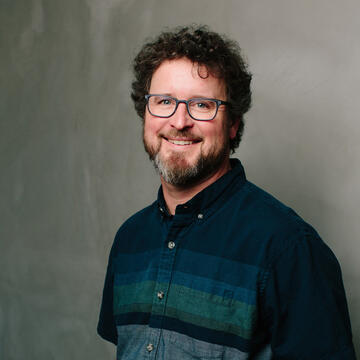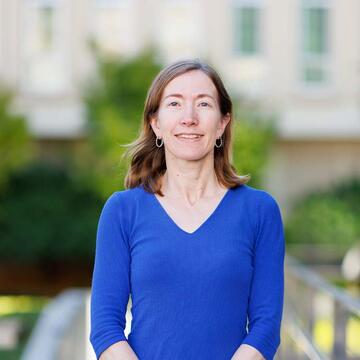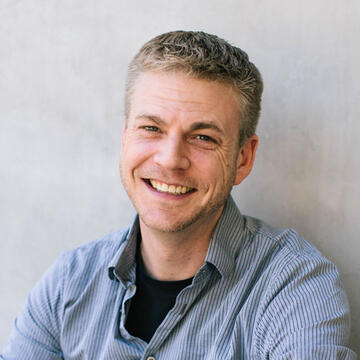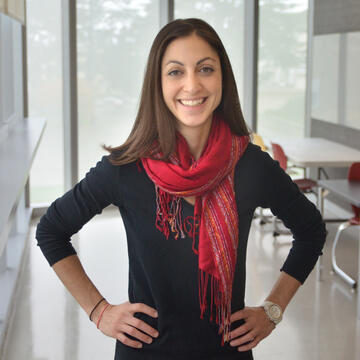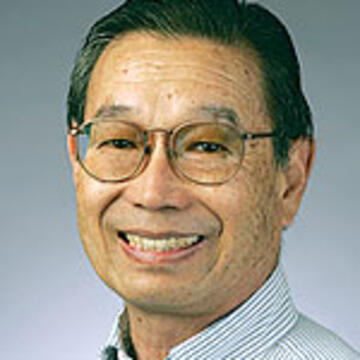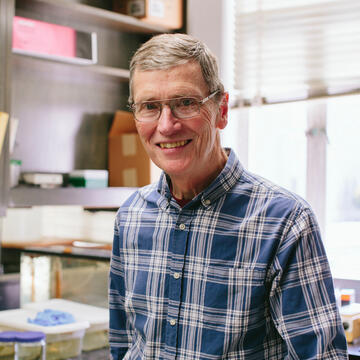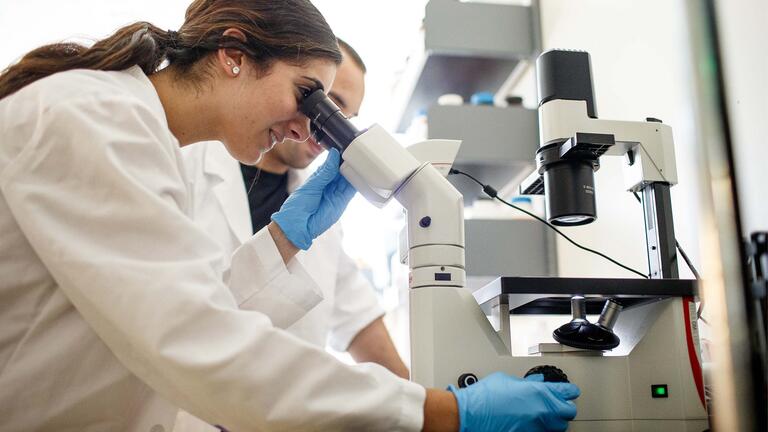
Faculty
Program Director
Dr. Nicole Thometz is a broadly trained physiological ecologist who specializes in marine mammal physiology, ecology, and behavior. A main focus of her research program pertains to the physiological requirements and capacities of ice-dependent Arctic seals. This research aims to better understand the sensitivity and/or resilience of ringed, bearded, and spotted seals to ongoing sea ice loss and environmental change in the Arctic. Another key area of her research focuses on energy requirements...
- UC Santa Cruz, PhD in Ecology & Evolutionary Biology, 2014
- University of Portland, BS in Biology, 2008
Full-Time Faculty
Professor Archambeault is interested in how populations of organisms evolve and adapt to new environments. Her research focuses on identifying the genetic variants (mutations) that drive evolution, characterizing how these variants affect gene function, linking these variants to changes in development and phenotype, and ultimately understanding the selection pressures that favor these evolutionary changes. Professor Archambeault uses the threespine stickleback, a native Bay Area fish, to address...
- University of Washington, PhD in Molecular and Cell Biology, 2019
- San Francisco State University, MS in Biology, 2015
- Connecticut College, BA in Zoology, 2003
- Evolution
- Genetics
- Molecular biology
Jennifer A. Dever is Professor in the Department of Biology. She received her PhD from Texas Tech University. Professor Dever studies the genetics of threatened and/or endangered populations of vertebrates, including crocodiles and foothill yellow-legged frogs. She employs molecular markers to assess the genetic structure of these populations, with the goal of species conservation. Several graduate and undergraduate students are collaborating with Professor Dever on this research.
Watch her...
- PhD, Texas Tech University
Professor Sangman Kim is broadly interested in the interaction between hosts and microbes. His current research focuses on a family of receptors called toll-like receptors (TLRs) that are used by host immune systems to distinguish between different classes of microbes, in order to drive a tailored immune response. He is utilizing a variety of molecular methods to dissect signaling downstream of TLR activation, and investigating the impact of commonly-occurring TLR polymorphisms on microbial...
- University of Chicago, PhD in Immunology, 2018
- Seoul National University, MS in Biological Sciences, 2010
- UC Davis, BS in Biological Sciences, 2006
Scott Nunes is Professor in the Department of Biology. He earned his BA from the University of California, Santa Cruz and his PhD from Michigan State University. His research focuses on the behavioral ecology of mammals. His recent work with Belding’s ground squirrels in the Sierra Nevada has examined breeding dispersal in adult males, and short- and long-term benefits of play behavior for young animals.
- PhD, Michigan State University
- BA, UC Santa Cruz
John R. Paul, Assistant Professor, earned his BS degree from The Evergreen State College and a Masters in Zoology from the University of Florida. He earned a PhD in Biology from the University of Pittsburgh, working on the phylogenetics and ecology of the tropical plants in the lab of Stephen J. Tonsor. He held two postdoctoral researcher positions at Colorado State University, and also served as a general biology lecturer there for three semesters. His research program at USF focuses on the...
- PhD, Biology, University of Pittsburgh
- MSc, Zoology, University of Florida
- BSc, Evergreen State College
Professor Protas holds the Fletcher Jones Endowed Chair. Professor Protas studies the freshwater crustacean, Asellus aquaticus, that lives in both cave and surface environments. Her current research investigates the genetic basis of eye and pigment loss in multiple cave dwelling populations of the Asellus aquaticus species complex. She investigates whether the same genetic regions are responsible for similar phenotypes in independently evolved cave populations. In addition, her goal is to...
- Harvard University, PhD in Genetics, 2005
- Pomona College, BA in Biology, 1999
- Genetics
- Evolution
Professor Sikes is interested in the evolution and development of regeneration and asexual reproduction in invertebrates, particularly marine and freshwater flatworms. Current research focuses on understanding developmental mechanisms that allow some flatworms to regenerate and the molecular developmental processes that lead to diversification of asexual reproductive strategies.
- PhD, University of Maryland
- BS, Furman University
Professor Suni is interested in how environmental change and ecology influence the evolutionary trajectories and conservation status of populations. Her current research focuses on how drought and deforestation affect plant-pollinator interactions, and how we can increase positive feedback between human-dominated and natural areas.
- PhD, Biology, Stanford University
- BA, Biology, Colorado College
Professor Tzagarakis-Foster's research has focused on Nuclear Hormone Receptors, a large family of eukaryotic transcription factors that play key roles in a diverse array of physiological and developmental processes. During her graduate studies, she studied an oncogenic form of Thyroid Hormone receptor and its role in transcriptional regulation. As a postdoctoral fellow, Prof. Tzagarakis-Foster studied Estrogen Receptors and their role in breast cancer. At USF, she studies the orphan receptor...
- UC Davis, PhD in Microbiology, 1999
- University of San Francisco, BS in Biology, 1990
- Cancer biology
- Endocrinology
- Cell and molecular biology
Faculty Emeritus
Raymond James (Jim) Brown joined the USF faculty in fall 1970 as an Assistant Professor in the Biology Department. Over his 37 years at USF, Jim taught General Biology, Organic Evolution, Comparative Anatomy, Vertebrate Embryology, and California Wildlife. Later in his career, he directed the Graduate Environmental Management Program and helped establish the Environmental Science Department. He was the first chair of the department and taught Environmental Science and Environmental Monitoring...
Paul K. Chien is Professor of Biology. He received his BS in both Biology and Chemistry from Chung Chi College, N.T., Hong Kong, and his PhD from the University of California, Irvine. Prof. Chien is interested in the physiology and ecology of inter-tidal organisms. His research has involved the transport of amino acids and metal ions across cell membranes and the detoxification mechanisms of metal ions.
John Sullivan holds the Fletcher Jones Endowed Chair. He received his AB from Dartmouth College, and his MS and PhD from Lehigh University. Prof. Sullivan investigates the role of the molluscan immune system in responding to parasitic infection and foreign tissue transplants. He is specifically interested in the interaction between the schistosome parasite, a major cause of human disease, and the snail intermediate host.
- PhD, Lehigh University
- MS, Lehigh University
- BA, Dartmouth College
